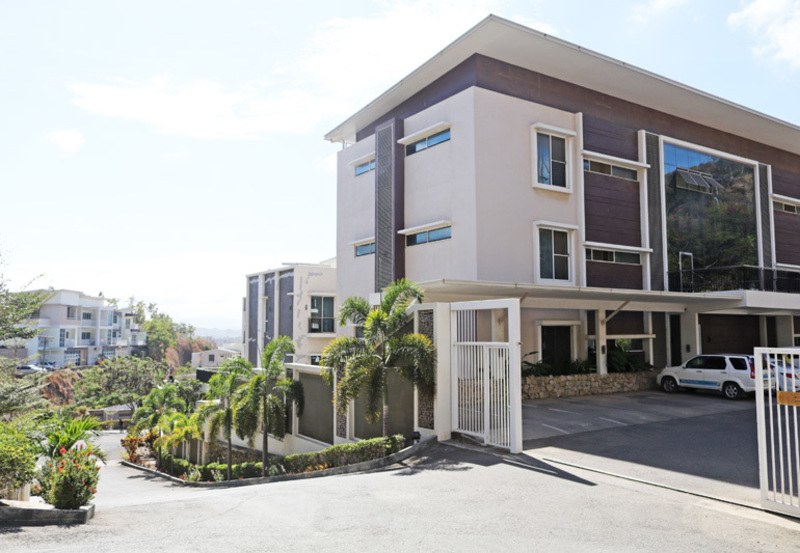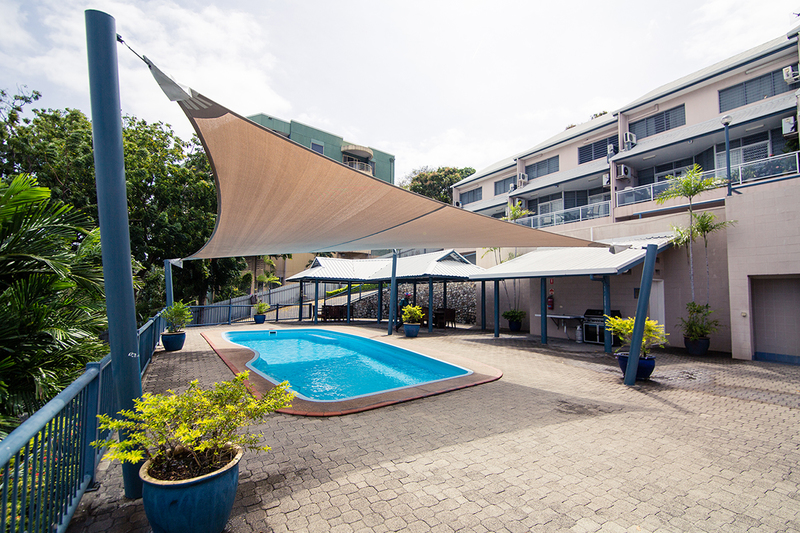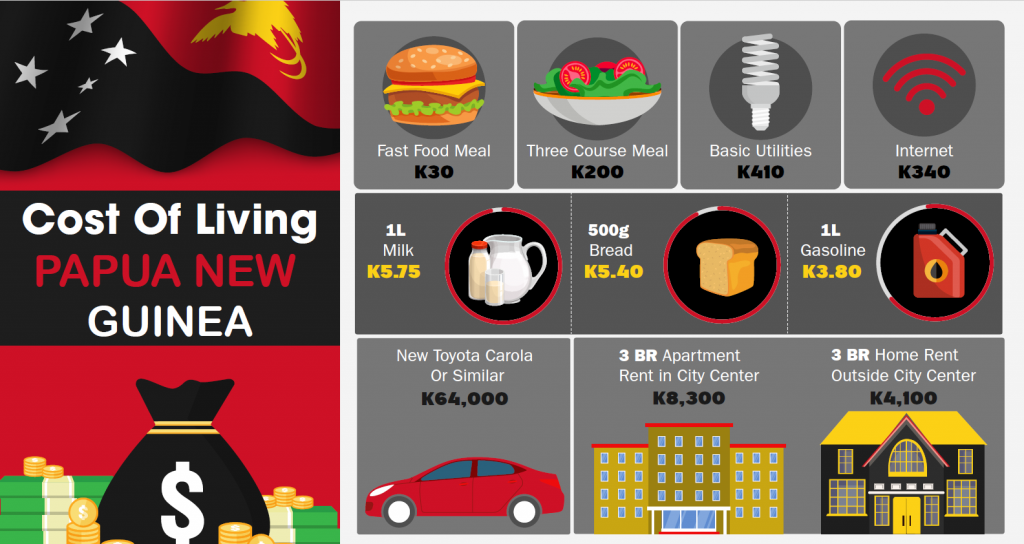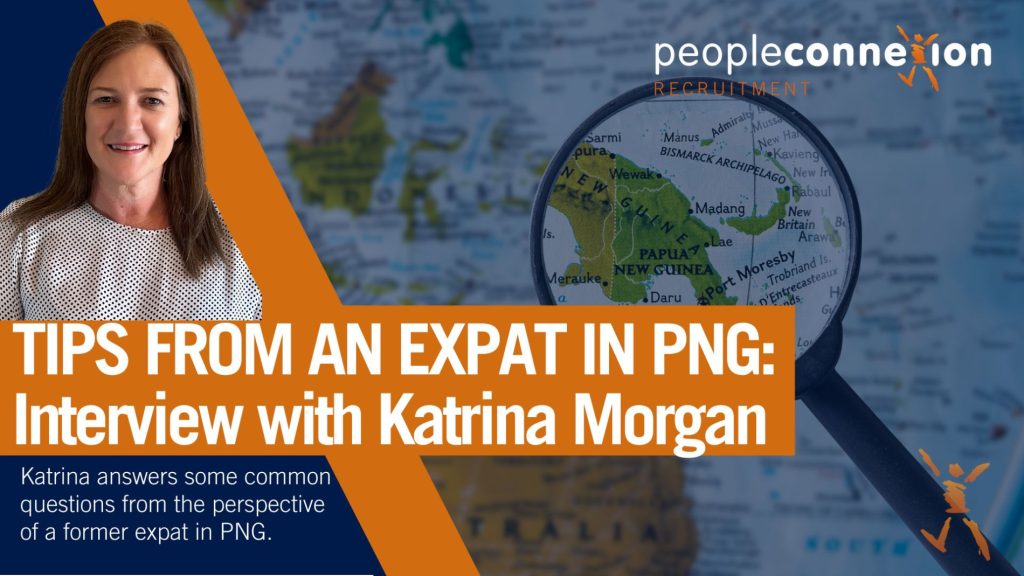We regularly have the opportunity to speak to professionals across the globe from here in Australia through to South Africa, Fiji and Indonesia. The one thing they have in common? They’re considering positions in Papua New Guinea.
During the interview process, we’re always asked about living in Papua New Guinea, working in Papua New Guinea, is it safe to work in Papua New Guinea and about general life in Papua New Guinea.
If you rely purely on news bulletins, it’s easy to form the wrong impression about Papua New Guinea. In reality, life in the land of the unexpected brings unique opportunities that professionals just won’t find in their home country. Having done business in PNG for 8 years now, with our own office in the capital district, we want to give you our own inside scoop into living and working on the beautiful island of opportunity.
What is the lifestyle like in PNG?
Papua New Guinea is home to tight-knit communities, where everyone knows everyone.
If there is one thing you need to know about life in PNG, it is that people are friendly, relaxed and have a strong sense of community. To live and work in PNG means building genuine relationships, connections and being willing to bring positive energy into your workplace and network.
Life in PNG really is what you make it.
Some professionals enjoy adopting a slower pace where lifestyle is prioritised, some keep a low profile to save cash for investments back home, and some really embrace the challenge of working in unfamiliar environments where they can really make an impact like never before.
While many expats living in PNG are single, it’s not uncommon to find professionals who have relocated their families, or travel between PNG and home on a FIFO roster. Every circumstance is different, however the key to building a rewarding life in PNG is keeping an open mind and evaluating what really works for you.
With that said, life in PNG isn’t always a walk in the park. Adjusting to a different pace and finding your feet in the community can take some time. Where jumping in the car and running errands in Australia can be a breeze, in PNG it takes a little more planning and know-how to navigate the lines and systems in the banks, knowing how to avoid large crowds
Housing in Papua New Guinea


Examples of some of the apartment complexes for rent in Port Moresby
For expats working in Papua New Guinea, many live in a housing complex or company-provided/subsidised apartments with facilities provided. These arrangements offer many opportunities to socialise and find friends or families in the same boat as you.
Trying to organise accommodation on your own can be difficult, as there are some areas that have better road access, closer to social or community hubs, and it’s challenging to work out where those locations are until you have already moved. To find a housing arrangement in Papua New Guinea that’s right for you and your lifestyle, we recommend organising through your company contacts or finding a reputable agent.
Schools in Papua New Guinea
If you are relocating family to Papua New Guinea, it’s important to thoroughly research the schools in Papua New Guinea and evaluate what works best for your family.
It may be helpful to visit the International Education Agency (IEA) website to find lists and contact numbers of IEA-run schools across the country, in addition to finding out more about the curriculums of schools you are researching. Ensure you enquire about school fees, as fees in PNG are known for being quite expensive across the board.
International schools, whether independent or run by the IEA, are often recommended options as their curriculum generally offers a range of pathways to internationally-recognised secondary education completion certificates in addition to the PNG School Certificates.
The majority of students attending international schools are from PNG, which provides enriching experiences for students to understand the multi-faceted culture of Papua New Guinea and often make lifelong friends.
Schools in Port Moresby
- The Ela Murray International School – Ela Murray is the most popular school across the expatriate community and offers schooling from Primary through to Year 8
- Gordon International School – Offers international examinations and schooling from Early Childhood to Year 8
- Port Moresby International School – This high school offers schooling from Year 8 through to Year 12 and offers the International General Certificate for Secondary Education which is equivalent to a British GCSE and widely accepted for tertiary education enrolments
- KoroBoro International School – The primary school offers schooling from Kindergarten through to Year 6
- St Joseph’s International Catholic College – This non-IEA private school has been operating for 100 years, and offers both primary and secondary education.
Schools in Lae
- The International School of Lae (TISOL) – offering schooling from Early Childhood through to Year 6, TISOL is another EA owned and operated school
- Coronation College – Coronation College is comprised of Coronation International Primary School running from Preschool to Year 8 and Coronation High School from Year 9 through to Year 12.
- Lae Christian Academy – Another independent school, Lae Christian Academy offers schooling from Prep through to Year 12, offering the American Abeka Christian curriculum.
Schools in Madang
- Madang International Primary School – Offers primary schooling through to Year 7
Schools in Goroka
- Australian International School – this private school is not run by IEA, however is run as part of Education Queensland International, utilising the Queensland school curriculum
Schools in Lihir
- Lihir International Primary School – supported by Newcrest, this independent school also runs on the Queensland school curriculum as part of Education Queensland International
You can find further lists of international schools here: http://www.cedol.org/pacific/papua_new_guinea/schools_in_papua_new_guinea/
Leisure and social activities in Papua New Guinea
Trying to find out what to while working or living in Papua New Guinea? There is no shortage of social activities available in PNG’s major cities and townships. Many of our placed candidates spend their weekends on sailing and fishing trips, in tennis and squash games, in running groups. If you can name an activity, chances are there’s a club for it that you can join.
Click through on the links below to view some examples of the clubs in major cities you can get involved in:
If you’re more of a homebody, you’ll find that many complexes have pools and gyms you can use to your heart’s content. Internet in PNG can be hit-and-miss, so it’s worth taking over your favourite movies, TV shows and games to keep you entertained on days when Netflix just won’t load.
Working: What job opportunities are available in Papua New Guinea?
You will find expats in every industry in Papua New Guinea, often in a range of highly specialised/technical positions (for example, engineering, infrastructure, resources and aviation) or corporate executive management positions.
Depending on the nature of the position, FIFO (Fly In Fly Out) rosters may be available, however these arrangements are most common in the Oil & Gas, construction and aviation industries where the majority of work is carried out in remote locations.
Given the seniority of the majority of expat positions, working in PNG provides expats with an incredible opportunity to mentor, train and guide local teams who may not have had the same level of exposure (in terms of education, software training, on-the-job training or exposure to large projects).
This is the most important (and often unspoken) role of expatriates working in Papua New Guinea – being able to pass on their knowledge and investing in the professional development of others.
Is it safe to work and live in Papua New Guinea?
Much of the media coverage about PNG is focused on negative or isolated incidents, often ignoring the majority of professionals working in-country who go about their day-to-day with little-to-no issues.
As is the case in many developing countries, there can be a degree of difficulty surrounding law and order. Always ensure you register yourself on Smart Traveller or your home country’s equivalent to be kept up to date of any alerts or situations to be aware of.
In the experiences of our PNG team and placed candidates, simply respecting cultural practices and norms and taking common-sense precautions as in any other country is sufficient. By knowing which roads to avoid at night, precautions you can take when travelling by car and how to prevent getting caught up in large crowds, you will find that you are able to move freely without restriction, and identify when it’s best to just take a different route.
The best approach is to be sensitive, sensible, keep a low profile and remember that you’re a guest in Papua New Guinea. The vast majority of people you will meet are incredibly friendly, welcoming and willing to lend a hand – this is all part of Papua New Guinea’s wantok system that prioritises a sense of community.
What is the benefit of gaining overseas experience?
Here in Australia, we are seeing a holding pattern in many areas. Wage growth is still stagnant in many industries, and the pressure of rising housing costs only adds to that stagnant feeling of a daily grind. For many expatriates, working in PNG is a way to break up their career and pursue a leadership-style role that may not be available as part of their current career trajectory. As mentioned, expats working in PNG often have the opportunity to take on the role of a mentor which is the ultimate valuable skill and one which may only be acquired by taking opportunities to work overseas, especially in less-developed countries.
The next 12 months will be a fantastic time to get some experience in Papua New Guinea especially for expats in the industries of Resources, Infrastructure and Oil & Gas. With APEC ahead and FEED announcements for major projects in png like Total’s Papua LNG on the horizon, now is the perfect time to make a move and gain some experience before the bulk of recruitment kicks off.
Earlier this year, the ExxonMobil-led owners of the P’nyang gas project in Papua New Guinea have signed the major agreement with the PNG government that will underpin the project’s development. P’nyang gas will be delivered through new upstream facilities in Western Province in north-west PNG and link to the existing PNG LNG export facility near Port Moresby. In addition, the project will create a number of expat jobs and business opportunities, and provide training and skills development opportunities.
What is the most important thing you should know if you’re thinking of working in PNG?
Keep an open mind!
Whenever you’re living and working in a different country, it is important to be open to change and make every effort to understand and adapt to the local culture. The more you invest in your team and your community, the more rewarding you will find your experience.
To learn more about Papua New Guinea, you can access our expat resources or read more about life as an expat in the articles below:
- Expats Contracts – 4 Questions You Need to Ask Before You Sign
- Life in Lae – A Guide for Expats
- The 7 Traits of Successful Expats in PNG
Still want to know more about living and working in PNG?
We interviewed our Recruitment Consultant, Katrina Morgan, who not only was born in PNG, but moved with her husband and daughter to PNG to take up an expat position for 2 years. Watch her interview below to gain some exclusive inside information, advice and experiences which can help you paint a real life picture of taking up an opportunity in PNG! You can also hear about Katrina’s top 10 things she wished she’d known as a newbie in the country!
If you are in the Oil & Gas, Infrastructure, Engineering or Construction industries, sign-up to our Job Alerts to make sure you don’t miss out on any upcoming expat opportunities in PNG. Alternatively, if you want to have a chat about any opportunities, Contact us today to get in touch with one of our Consultants.

